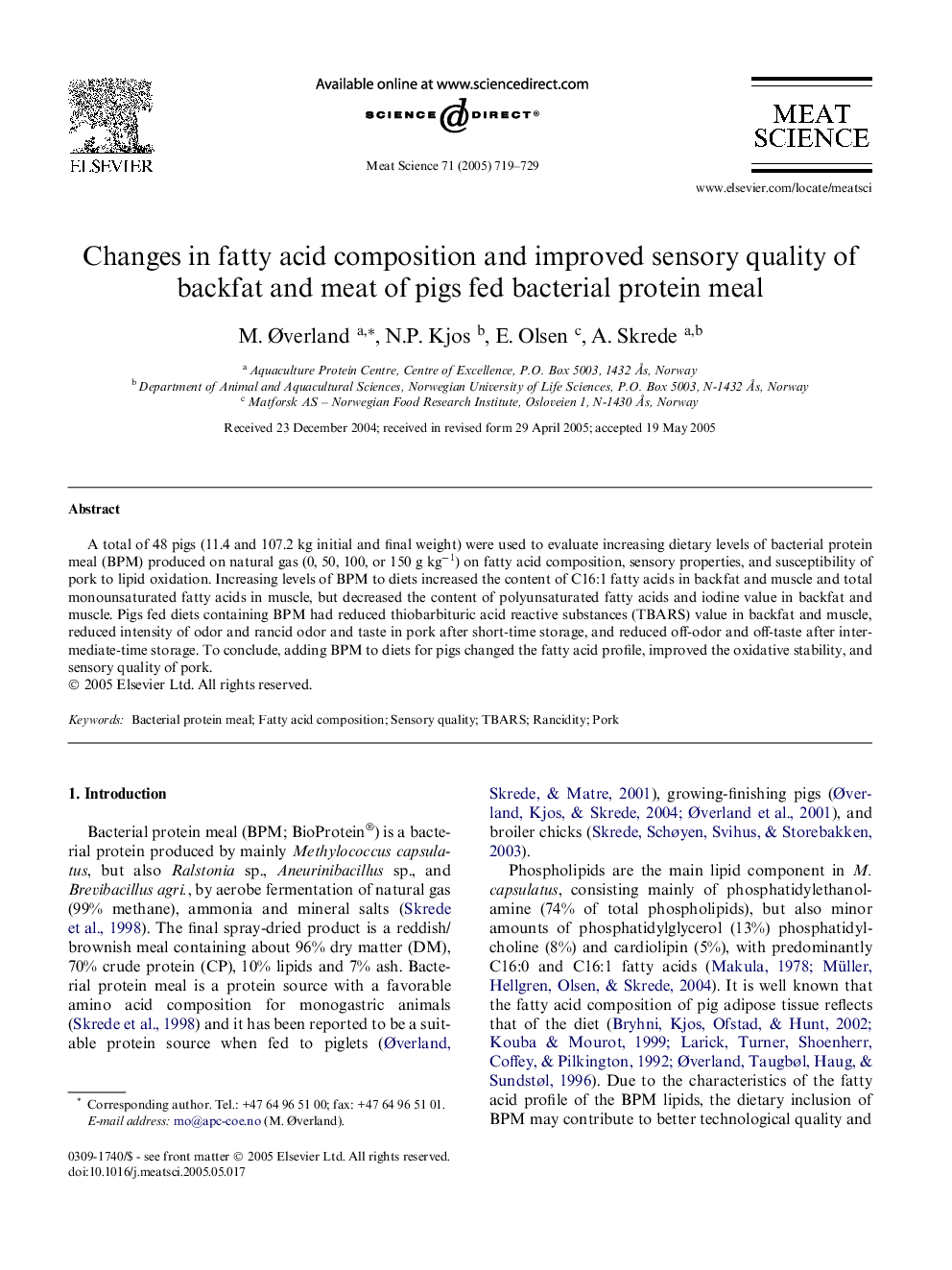| Article ID | Journal | Published Year | Pages | File Type |
|---|---|---|---|---|
| 8983572 | Meat Science | 2005 | 11 Pages |
Abstract
A total of 48 pigs (11.4 and 107.2 kg initial and final weight) were used to evaluate increasing dietary levels of bacterial protein meal (BPM) produced on natural gas (0, 50, 100, or 150 g kgâ1) on fatty acid composition, sensory properties, and susceptibility of pork to lipid oxidation. Increasing levels of BPM to diets increased the content of C16:1 fatty acids in backfat and muscle and total monounsaturated fatty acids in muscle, but decreased the content of polyunsaturated fatty acids and iodine value in backfat and muscle. Pigs fed diets containing BPM had reduced thiobarbituric acid reactive substances (TBARS) value in backfat and muscle, reduced intensity of odor and rancid odor and taste in pork after short-time storage, and reduced off-odor and off-taste after intermediate-time storage. To conclude, adding BPM to diets for pigs changed the fatty acid profile, improved the oxidative stability, and sensory quality of pork.
Related Topics
Life Sciences
Agricultural and Biological Sciences
Food Science
Authors
M. Ãverland, N.P. Kjos, E. Olsen, A. Skrede,
